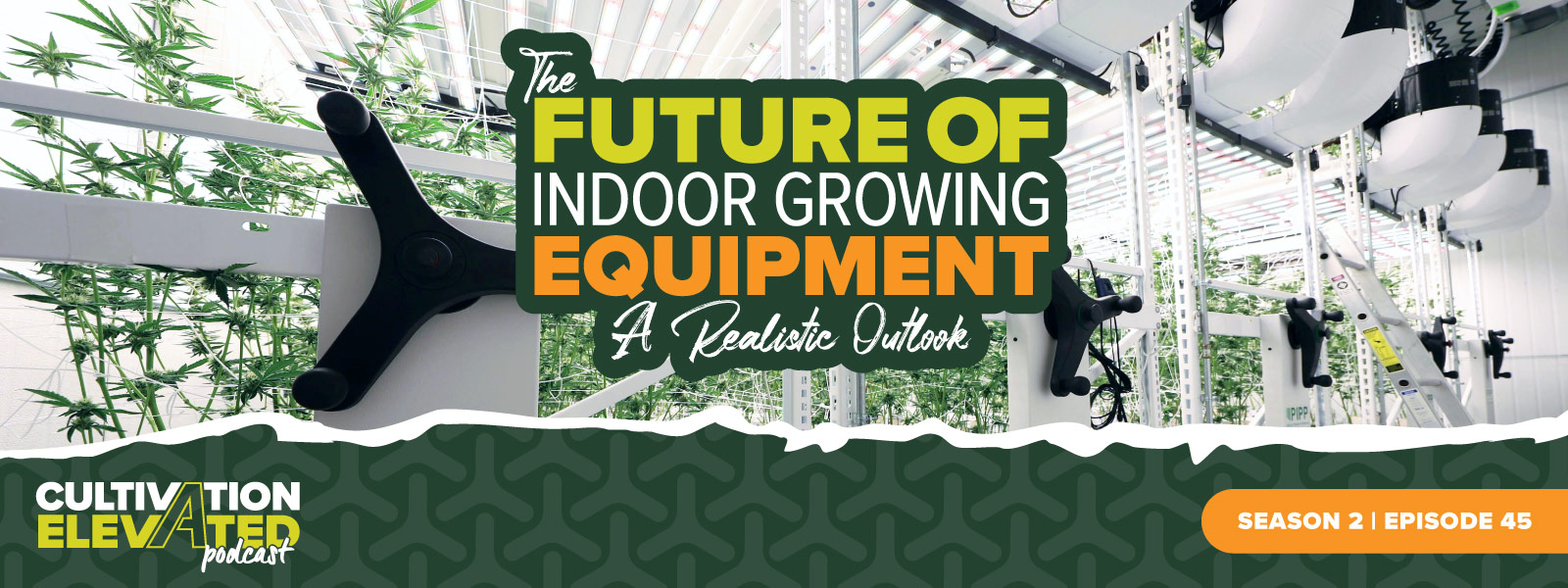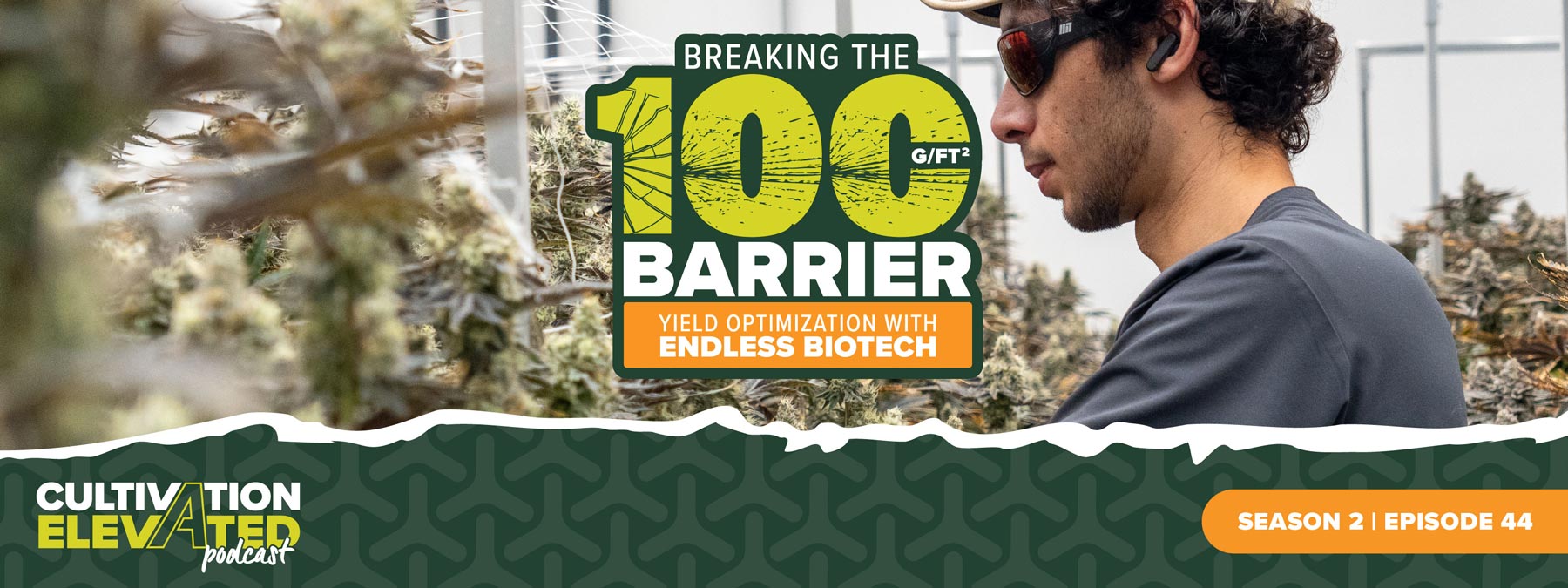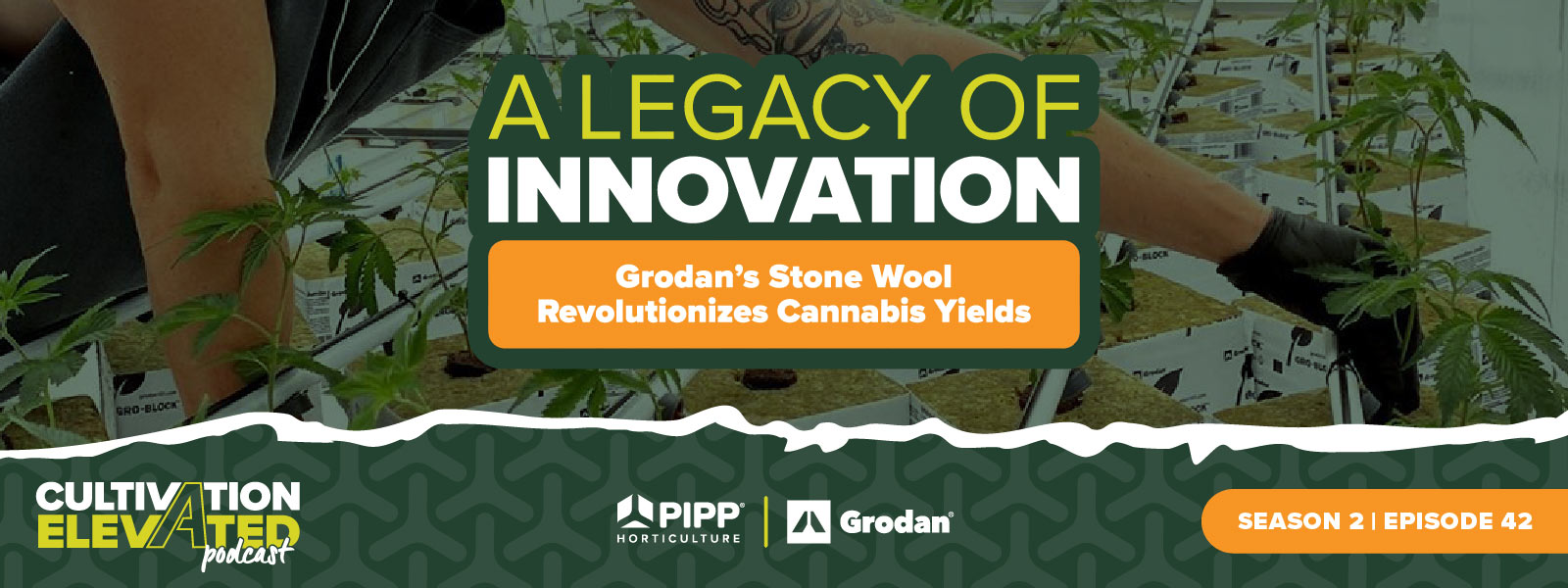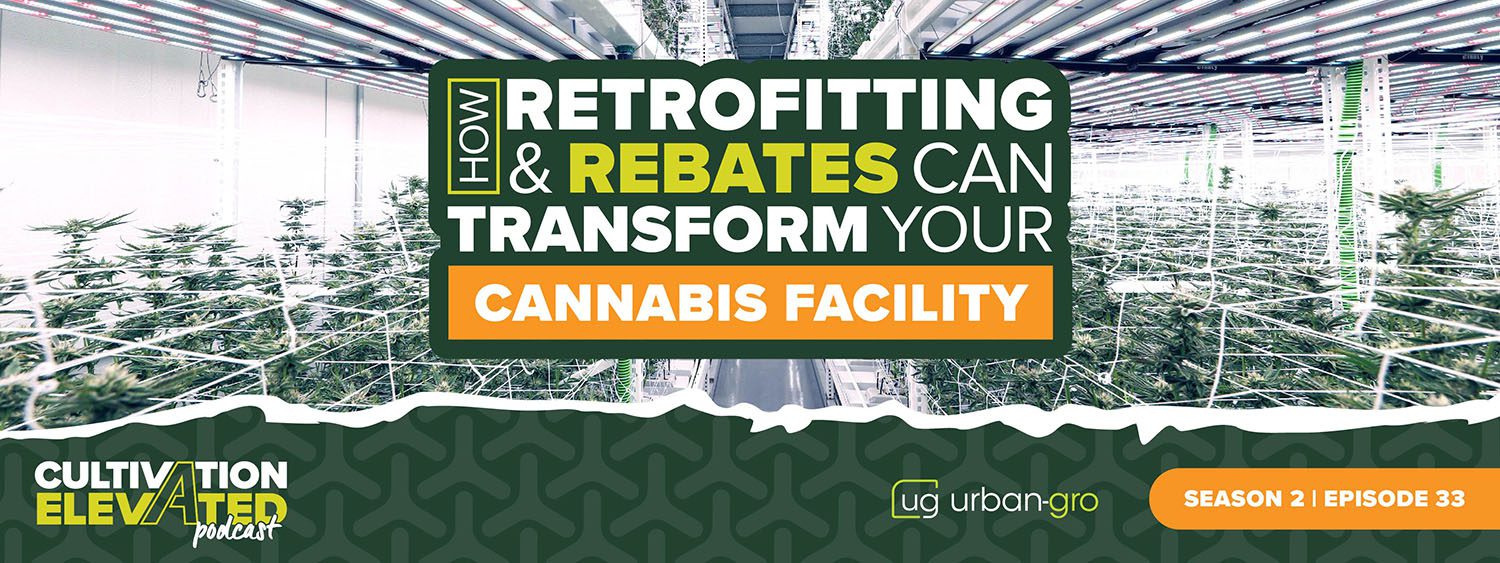Season 2 | Episode 45: The Future of Indoor Growing Equipment: A Realistic Look

Summary:
Podcast Episode Summary:
This episode explores the future of cannabis cultivation, focusing on emerging tech, sustainability, and automation with Anders and Michael:
- Digital twins allow growers to simulate environmental changes in a virtual model of their grow room, predicting outcomes like microclimates, transpiration rates, and yield impacts before making real-world adjustments.
- These systems integrate real-time sensor data with AI and Computational Fluid Dynamics (CFD) modeling to enable more precise, predictive crop management.
- CFD modeling for airflow, temperature, and CO₂ behavior in grow rooms is currently expensive but expected to become more accessible, potentially standard in future facility planning.
- Energy monitoring is predicted to evolve from whole-facility tracking to equipment-specific monitoring, helping optimize individual systems and reduce consumption.
- Closed-loop water recirculation systems are highlighted as a major sustainability trend, treating and reusing city water, condensate, and nutrient runoff through a central filtration system to minimize waste.
- Nutrient recovery systems exist today that can remove fertilizer from water via flash evaporation, though separating specific nutrients is seen as a longer-term innovation.
- Humanoid robotics may begin replacing low-skill labor tasks like defoliation, offering reliability and consistency in areas where human turnover is high. There’s caution about potential malfunctions.
- Lighting has rapidly shifted from HPS to highly efficient LEDs, with some fixtures now achieving over 3.0 micromoles per joule efficiency. Adjustable spectrum LEDs offer targeted benefits but slightly lower efficiency.
- AI-controlled lighting systems are expected to dynamically adjust light intensity, spectrum, and photoperiod based on real-time plant data instead of preset schedules.
- CO₂ delivery systems are seen as mostly mature, but innovation in sourcing like direct air capture or repurposing fermentation CO₂ is likely to emerge.
- HVAC infrastructure will likely remain structurally stable, but control systems and refrigerants are expected to evolve, particularly with environmental regulations pushing R410A out of the market.
- Hosts anticipate building materials like phase change materials could become more common in grow room construction.
- The episode wraps with the hosts expressing appreciation for their niche but engaged audience, encouraging feedback and questions, and highlighting their openness to discussing real-world cultivation challenges on future episodes.
About Cultivation Elevated
If you are a grower looking to optimize your cultivation facility or anyone looking to cultivate more in less space, then this is the show for you. Each week, join Host Michael Williamson as he travels across the country, to explore the world of vertical farming and the future of cannabis and food production through his conversations with leading industry operators, growers and executives who are demonstrating success and resilience as growers and cultivators. Each episode provides stories and key insights that will inspire and show you first-hand, how each of these companies have overcome challenges, and found their own path to success.




